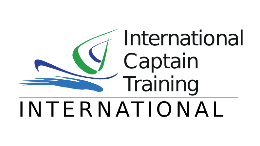The Marine Communication VHF Short Range Communication course is designed to provide students with the essential knowledge and practical skills required to operate VHF radio equipment on board a vessel. This course is ideal for all seafarers, including recreational boaters, professional skippers, and crew members who need to communicate effectively and comply with maritime communication regulations.
Marine Communication VHF Short Range Communication Course
Course Objectives
- Understand the principles and operation of VHF radio communication.
- Learn the correct procedures for distress, urgency, safety, and routine communication.
- Gain practical experience in using VHF radio equipment.
- Comply with international maritime communication regulations.
Prerequisites
- Minimum age: 16 years.
- No prior experience required.
Course Duration
- Theory and Practical: 1 day (approximately 8 hours).
Course Content
- Introduction to VHF Radio
- Basics of VHF radio waves and transmission.
- Types of VHF radio equipment and their components.
- Power sources and battery management for VHF radios.
- Regulations and Requirements
- International maritime communication regulations.
- Licensing requirements for VHF radio operators.
- Legal obligations and responsibilities of radio operators.
- Radio Communication Procedures
- Phonetic alphabet and standard marine vocabulary.
- Making routine calls: ship-to-ship, ship-to-shore, and shore-to-ship.
- Distress, urgency, and safety communication procedures (MAYDAY, PAN-PAN, SECURITE).
- Digital Selective Calling (DSC) procedures.
- Operating the VHF Radio
- Turning on and setting up the VHF radio.
- Selecting channels and understanding their uses.
- Adjusting squelch and volume controls.
- Initiating and receiving calls.
- Distress and Emergency Procedures
- Recognizing and responding to distress signals.
- Correctly using distress communication (MAYDAY) and DSC alerts.
- Coordinating with search and rescue operations.
- Logging and recording radio communications during emergencies.
- Practical Operation and Assessment
- Hands-on practice with VHF radio simulators.
- Conducting routine and emergency communication scenarios.
- Practical assessment of VHF radio operation skills.
Assessment
- Written Exam: Multiple-choice questions covering VHF radio operation principles and communication procedures.
- Practical Exam: Hands-on assessment of operating VHF radio equipment and following correct communication procedures.
Certification
Upon successful completion of the course and exams, students will receive the ICT International Captain Training Academy VHF Short Range Communication certificate.
Career Opportunities
Graduates of this course can pursue various maritime roles, including:
- Recreational Boat Operator.
- Professional Skipper or Crew Member.
- Maritime Safety Officer.
- Roles in maritime operations and management.
